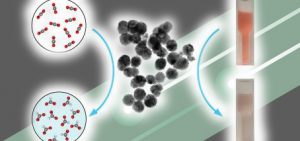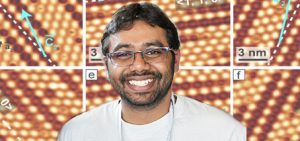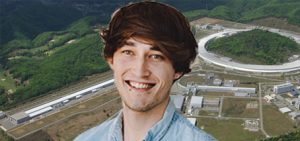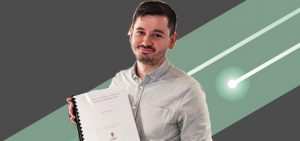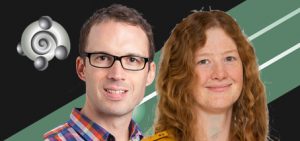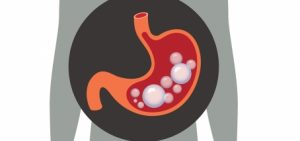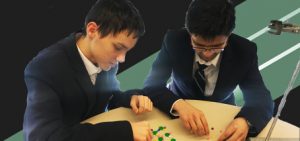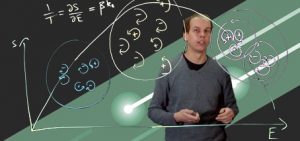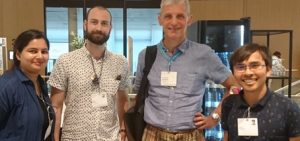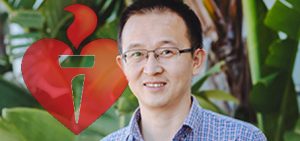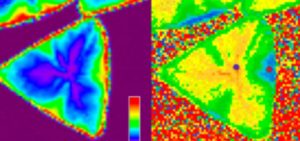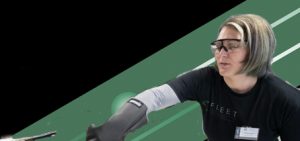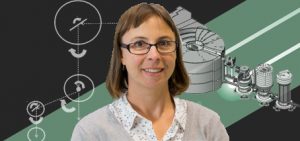Engage
See news from around FLEET, below
Catch up on all past issues of FLEET News newsletter
FLEET News
Forget the laboratory, substances that can solve environmental problems by capturing carbon dioxide, decontaminating water and cleaning up pollutants can be easily created in a kitchen, a UNSW Sydney study shows. In a paper published today in Nature Communications, UNSW chemical engineers shone a light on the mysterious world of liquid metals and their role as catalysts to speed up chemical …
Molecular self-assembly on a metal results in high-density 2D organic (carbon-based) quantum dot array with electric-field-controllable charge state Organic molecules used as nano-sized building blocks in fabrication of functional nanomaterials The achieved densities of the 2D organic quantum-dot arrays are an order of magnitude larger than conventional inorganic systems. A Monash University experimental study has fabricated a self-assembled, carbon-based nanofilm …
UNSW PhD student focuses one-km long laser to probe electronic structure Measuring femto-second responses on X-ray Free Electron Laser (XFEL) One of the highest energies of any synchrotron in the world. “It’s a pretty surreal being at the pointy end of almost a kilometre-long laser,” says UNSW PhD student Oliver Paull. “Not because of any danger from the laser (even …
Congratulations to FLEET PhD student Stuart Burns, who submitted his PhD thesis recently, and whose hard work was rewarded by a rare UNSW scholarship to continue to carry out research while his thesis is being reviewed. Stuart is a PhD candidate working with Prof Nagy Valanoor and Dr Daniel Sando at UNSW to study the functional behaviours of ferroelectrics at …
Ahead of this weekend’s Climate Action Summit in New York, FLEET (Australia) and the MacDiarmid Institute (New Zealand) today announced a new partnership between the two science organisations, which share a mission to search for future low-energy electronics via the development of novel materials and devices. MacDiarmid is the premier centre for materials research in NZ, and co-Directors Professor Justin …
—by Cecilia Bloise, Node Coordinator, UNSW There’s nothing like a strong dosage of outreach to get the ‘cats out of the box’ into the public sphere. The FLEET Centre of Excellence invests significant resources into science-outreach, aimed to inspire stronger engagement with science across all levels of the community, from primary and secondary school students to the broader population. Beyond …
A source of embarrassment to some, or pure comedy to others, flatulence and the gases of the intestines are increasingly seen as playing an important role in our digestive health. A paper led by UNSW Sydney and published in Nature Reviews Gastroenterology & Hepatology has examined all available literature on gastrointestinal gases, their interactions with the microbiome of the gut, …
FLEET is currently helping to run a Year 10 ‘Future electronics’ course in partnership with John Monash Science School, Victoria. As well as covering the history of semiconductors and computing, and introducing students to Moore’s Law, the course will also be most students’ first introduction to quantum science, and will be Australia’s first introduction to superfluids and topological materials at …
—by Dr Shaun Johnstone (Monash University) and Dr Tapio Simula (Swinburne University of Technology) One of the first things we learn about the absolute temperature scale, measured in degrees Kelvin, is that it’s impossible to get temperatures below Absolute Zero. But in a recent pair of FLEET studies into turbulence, researchers were working in a regime of precisely that: negative …
Three FLEET ECRs were fortunate to attend the 69th Nobel laureate meeting in Lindau, Germany, forming an impressive 30% of Australia’s ten-person delegation elected and led by the Australian Academy of Science. This year’s meeting focused on physics, and a number of senior FLEET were amongst the laureates. Our ECRs were pleased to connect with Wolfgang Ketterle, William Phillips, and …
First observation of excitonic insulator New exotic state was first predicted in 1960s A University of Wollongong / Monash University collaboration has found evidence of a new phase of matter predicted in the 1960s: the excitonic insulator. The unique signatures of an excitonic insulating phase were observed in antimony Sb(110) nanoflakes. The findings provide a novel strategy to search for …
FLEET Associate Investigator Professor Yuerui Lu (ANU) has been named a Heart Foundation Future Leader Fellow. The innovation of Professor Lu’s research, which focuses on the next-generation high-throughput 3D microscopy for cardiovascular imaging, was also recognised by the Foundation’s Paul Korner Innovation Award. This project aims to demonstrate proof of the concept for a novel high-throughput 3D microscope using ultra-thin, …
Oxidation of monolayer WS2 in ambient requires exposure to light, and keeping samples in darkness can protect from oxidation Routine exposure to room lights (days) or light microscopes can cause significant oxidation, suggesting wide reaching implications for current and future studies of monolayer S-TMDs To protect monolayer semiconductor transition metal dichalcogenides (S-TMDs) from oxidation, they must be entirely shielded from …
Congratulations to FLEET’s outreach officer Dr Dianne Ruka, winning the Award for Exceptional Service to the Faculty of Science at Monash University. Dianne leads the education and training missions for FLEET across all seven collaborating universities, supporting staff and students across both Monash’s Science and Engineering Faculties, through science outreach programs. Since joining FLEET in 2017, Dianne has combined her …
Welcome to Kirrily Rule (ANSTO), who joins FLEET as a new Partner Investigator. Dr Kirrily Rule is an internationally-recognised leader in understanding low-dimensional and ‘frustrated’ magnetic materials. At ANSTO, she is one of three instrument scientists responsible for ANSTO’s triple-axis spectrometer TAIPAN , which provides highly detailed information of collective motions of atoms in solids, including phase transitions. Within FLEET, …

